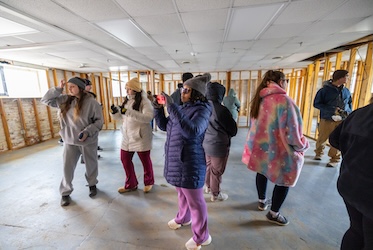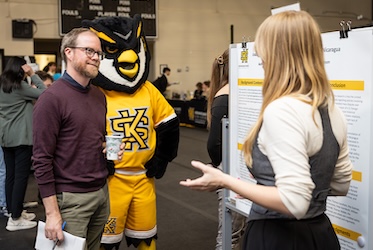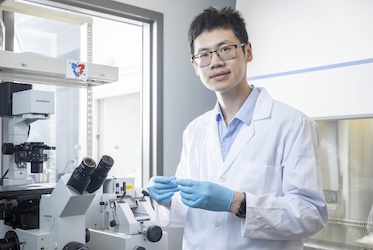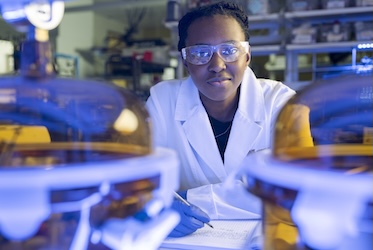
Kennesaw State researcher applies mathematical modeling expertise to health care systems
KENNESAW, Ga. | Apr 15, 2024

Instead, she has worked for years to apply her expertise in industrial and systems engineering in areas that improve the delivery of health care. She loves helping others, whether it’s collaborating on health-related research, teaching new generations of engineers at Kennesaw State or volunteering in the community.
In the area of health care, Scherrer, a professor in the Industrial and Systems Engineering Department within the Southern Polytechnic College of Engineering and Engineering Technology, has done research on school-based dental sealant programs, fluoride varnish delivery, optimizing the location of community health centers, and modeling the hospital-based spread of tuberculosis.
“I am currently collaborating with several public health experts, dentists and a pediatrician. I think industrial engineers are especially well-suited to interdisciplinary research, since the modeling and statistical analysis tools that are core to our field can be applied to many different problems,” Scherrer said.
Scherrer usually applies her expertise to projects that have an opportunity to help people, often children. She is currently studying fluoride varnish applications for pediatric practices, which have the potential to improve the oral health of young children who may not be able to visit a dentist.
“I have always been most interested in projects that have the potential to positively impact health, especially for populations that may have limited access to healthcare,” Scherrer said. “It is exciting to receive research funding and to publish in respected journals, but for me it is even more rewarding to learn that work I was involved with was used to impact health policy or even just to hear from a health center that they are using our results to improve their patients’ health outcomes.”
Scherrer doesn’t only impact people via the outcomes of her research. Her students gain a lot from the experience as well. Nine undergraduate students and one doctoral student have been involved with her study on fluoride applications, in collaboration with professor Robert Keyser.
“With our college’s new Ph.D. program in interdisciplinary engineering, my first Ph.D. student, Mahdiyeh Soltaninejad, has been working on the project,” Scherrer said. “The opportunity to mentor the next generation of researchers is such a privilege and also really fun. This particular group of students is very diverse in terms of gender, race/ethnicity, and first-generation college student status, and they have all contributed their skills in a number of ways to improve the work we are doing.”
Scherrer’s advice to students at KSU who want to get involved in research is to reach out to faculty in their departments to see what opportunities there are. For incoming students, joining the First Year Scholars program will allow students to do research in their first semester.
Scherrer’s passion to help others goes beyond her role as a professor. She is an active volunteer in the community, serving as a mentor to various math and robotics teams, an active leader in her church’s youth group, and a member of the Board of Directors of the Georgia Oral Health Coalition. She said her time in service to others is a reflection of those who helped her.
“I love spending time with teenagers, because I can appreciate the ways that my life was positively influenced by the mentoring, support and affirmation I received from adults at that time in my life, and I want to pay that forward to the next generation,” Scherrer said. “I always learn a lot from these experiences.”
This article is also published in the current issue of Summit Magazine.
– Kyle Dawson
Photos by Matthew Yung
Related Stories

Kennesaw State architecture, engineering students reimagine Asheville's devastated River Arts District

Kennesaw State students to present research at Symposium of Student Scholars

KSU researcher harnessing digital twin technology to improve heart care

Chemistry student engaged in sustainable catalyst research through Kennesaw State's First-Year Scholars program
A leader in innovative teaching and learning, Kennesaw State University offers undergraduate, graduate, and doctoral degrees to its more than 47,000 students. Kennesaw State is a member of the University System of Georgia with 11 academic colleges. The university’s vibrant campus culture, diverse population, strong global ties, and entrepreneurial spirit draw students from throughout the country and the world. Kennesaw State is a Carnegie-designated doctoral research institution (R2), placing it among an elite group of only 8 percent of U.S. colleges and universities with an R1 or R2 status. For more information, visit kennesaw.edu.














